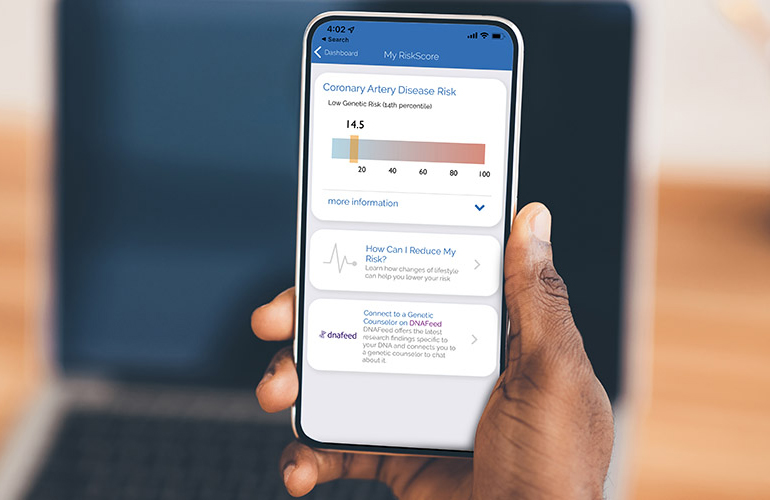Researchers at the Scripps Research Institute in California have developed a smartphone app that can calculate a user’s genetic risk of coronary artery disease. The app can import genetic information from a commonly used genetic testing service, 23andMe, and provide a personalized risk assessment of coronary artery disease. In tests so far, users receiving a notification of a high risk of coronary artery disease were more likely to seek treatment, such as taking statins to reduce cholesterol. The researchers hope that the system will prove to be a useful tool in alerting people about their risk and provide a stimulus for them to seek treatment.
Coronary artery disease casts a huge shadow on public health. In the US, almost half of men between 45-65 years of age have an intermediate risk of coronary artery disease, but many may be completely oblivious to this. This is reflected by the fact that only 1 in 3 of such men take drugs such as statins to control their cholesterol. Increasing awareness and translating this to action in the form of patients managing their cholesterol appropriately could have huge benefits in reducing cardiovascular disease and the massive societal costs that are associated with it.
The risk factors for coronary artery disease are well known, but some are impossible to avoid. Some of us have a genetic predisposition to accumulate lipid plaque in our arteries, increasing our risk of a heart attack. Fortunately, genetic testing is becoming more common, and this should help to alert such people to their risk and the need to take pre-emptive action in the form of lifestyle changes and pharmacological intervention.
The researchers behind this latest technology have exploited the increasingly common phenomenon whereby people use online genetic testing services to trace their ancestry or identify health risks. They created an app that can import genetic information from a common genetic testing service, 23andMe, and then generate a personalized genetic risk score for coronary artery disease. The motivation is to alert people of their risk so that they can make informed choices about treatment.
So far, the Scripps team investigated 721 people who used the app to calculate their genetic risk of coronary artery disease and then they followed up with them a year later to see if the results had changed their approach to treatment.
“We saw about twice the rate of statin initiation in the high genetic risk group vs the low genetic risk group, which indicates that strategies like this could make a big contribution to public health — heart disease being the largest cause of death globally,” said Ali Torkamani, a researcher involved in the study. “Even if someone finds out they have low genetic risk for CAD, knowing their score can help — for example if they also know they have high risk overall, that may suggest other non-genetic factors like lifestyle are contributing to their risk and that they should consider making changes.”
Study in digital medicine: Impact of polygenic risk communication: an observational mobile application-based coronary artery disease study
